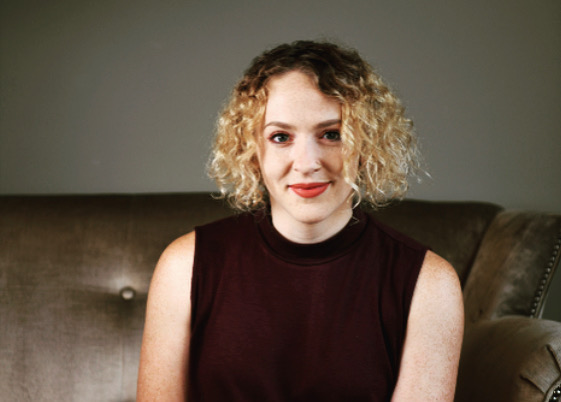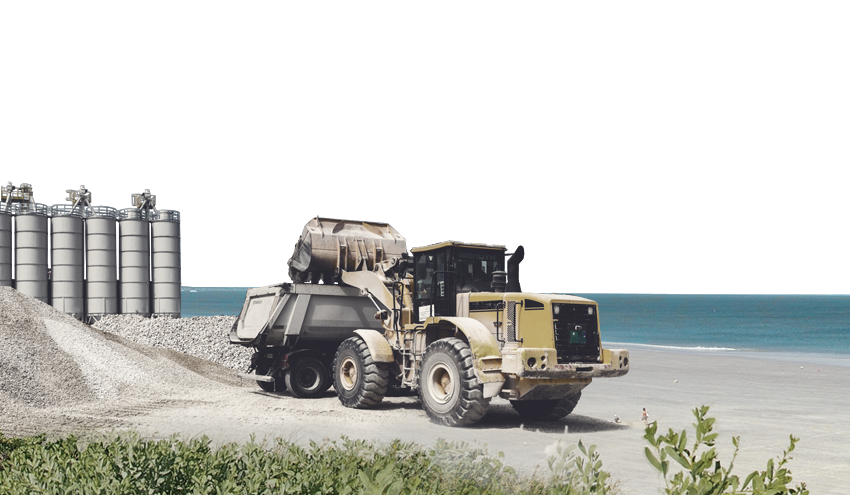Emily Atkin is pissed off about climate change. Her new newsletter Heated says we all should be
Fed up, pissed off and ready to act on climate injustice. That’s the direction Emily Atkin is taking her new climate change newsletter, Heated.
After two and a half years at The New Republic, Atkin decided today’s climate reporting needed quick, radical change to properly arm concerned citizens – something she believes established publications are not doing fast enough. So, last month, she left TNR to champion her own platform.
Rather than pick apart the consumption habits of the common citizen, Atkin wants to use her newsletter to write stories that highlight corporate greed and the willing complacency of political powers as the two more substantial impediments to climate solutions. Stories like “The Blood-Dimmed Tide: Climate change is poised to alter the face of global conflict,” which she penned for TNR as a contributing editor last week.
With climate week in New York coming to a close, millions of disgruntled protestors taking to the streets of the world’s major cities, and Atkin herself running a panel about the state of climate coverage this week at the New School in New York, it seemed like the perfect time for Storybench to sit down with her to talk about how Heated will challenge climate reporters during a mounting global crisis.
My first experience with your writing, and in a way your early analysis of climate coverage, was on the subject of climate disaster porn – I think it was after the Uninhabitable Earth by David Wallace-Wells was published. Back then there was this sense that there are elements of and patterns in climate reporting that need to change, or perhaps there are more effective ways of storytelling in this niche. Is this the kind of rationale behind starting this newsletter, Heated?
Well, there were a bunch of reasons for why I thought I should start my own thing. One is that I feel like climate coverage doesn’t offer enough recognition that this is not just a scientific problem, not just a policy problem, it’s actually a preventable problem that was caused (for the most part) by people in power.
What I learned very early in journalism school is that the purpose of journalism is to hold powerful people accountable; to make sure that people in power can justify the decisions they’ve made that hurt vulnerable people. It’s to give voice to the voiceless and afflict the comfortable. I don’t think the public sees climate change enough as a problem that was mostly caused by the fossil fuel industry, by greedy and power-seeking, money-hungry politicians, by apathetic politicians who didn’t do enough to [engage in] climate change action when it was actually feasible to do so, before it became completely impossible to win office as a Republican and actually want effective climate action.
There’s a lot of rhetoric in the climate-action debate and not a lot of real action or votes for anything [of substance]. And we live in a country with completely apathetic politicians, who have for years and years refused to do anything about this crisis. We live in a country where corporations have poured billions of dollars into making sure we do nothing about this crisis; where powerful media institutions – who claim to be working on behalf of the public – have engaged in exactly the type of, “both-sides debate,” that corporations, fossil fuels executives, Koch brothers, etc. wanted them to do so they could delay climate action and make the most amount of money.
This is an accountability problem and we’ve lacked the kind of journalism [necessary] to call this out.
Emily Atkin
The second reason is that a lot of people approach climate change as if it’s something to be really sad about or if we should really “hope about,” this. That’s something people said about David Wallace-Wells’ The Uninhabitable Earth. People felt that it wasn’t good to lay out the disaster scenario[s] because it’s, “going to make people despair – they’re going to lose hope. And we have make sure that people have hope or this crisis is never going to get solved.”
I don’t think we need hope. If listen to everything I just said about how all these powerful people prevented action for this long, I think we should just be pissed.
Why tap into anger with your newsletter? What made that a clear emotion to work with? Are you afraid you might be courting the internet trolls who feed off the ire?
First off, I’ve been fighting with trolls on the internet about climate change since 2013. I’m not worried about trolls, because I think there’s just so much more power in telling the truth than in just being an [expletive}. My newsletter might sound like sometimes I’m coming off as an [expletive], but I’ll be coming off as an [expletive], because I’m trying to make sure that a bunch of vulnerable, voiceless people don’t get [expletive], you know?
To your question about why anger, I mentioned Wayne. I have him on the about page on my website, where I mentioned he used anger to motivate his work. His mentor, Jack Newfield, who was another investigative journalist in New York City, has this great quote in his biography about anger. It says this: “Compassion without anger can become nearly sentiment or pity. Knowledge without anger can stagnate into mere cynicism and apathy. Anger improves lucidity, persistence, audacity and memory.”
I love that quote because he’s basically saying that anger is the power behind your knowledge and your compassion. We need [both] to solve the climate crisis, but without anger we risk being stagnant, paralyzed, full of grief and pity. Anger is what takes compassion and knowledge and motivates it into action. I don’t think anything radical has ever been done without a bunch of really pissed off people. I’m hoping that we can start building the army of pissed off people, at least with this newsletter to start.
In the newsletter’s advertisements, you’ve mentioned corruption, leaders who may have knowingly failed the public and a series of unnerving decisions that have really prevented meaningful climate action. What inspired this kind of angle in your climate reporting?
It’s directly inspired by my late mentor Wayne Barrett, who was an investigative journalist for 30 years. He worked for The Nation and The Daily Beast when I was his assistant.
He was really the first journalist to ever dig into Donald Trump and his career as a real estate mogul in New York City in the 80s. And he wrote this book called Trump: The Deals and the Downfall, which is the first investigative book that dealt with him. Wayne was constantly pissed off that people with power were screwing the little guy. And so, motivated by his work, that’s generally what I want this to be: to show how people with power are screwing the little guy.
That’ll take many forms. Sometimes it’ll just be explanatory – putting together reporting that’s already out there. Sometimes it’ll be original reporting, [for example] showing you how a media institution is sponsoring an oil conference, or how a chicken company is getting its supply from deforested areas of the Amazon. The basic principle is to look at how, say, a politician says that they’re for climate action, but this is how they’ve voted.
Heated gives you the tools to affect change. As a reporter, I don’t actually think it’s my job to affect change. One of the things you’re taught in journalism school is that the reporter provides the information and the public decides what to do with it. I want to do is give the public information they can use to fight this problem effectively, if they so choose to. It’s up to my readers, it’s up to anybody to decide how they’re going to use journalism. But it’s also up to journalists to provide actionable information.
Are you planning to add multimedia elements to the newsletter?
I would love to, but I would say that I have big hopes and dreams for what this can be. But I have to take it one step at a time and so I’ll be focused on the writing. Hopefully that becomes easy and we can expand out.
I’m hoping this will pay for better reporting, so that I can go to more places and talk to more people; so that I can take this kind of reporting not just on the phone and in D.C. and New York (which are pretty easy places for me to get to), but wherever a story needs to be told. I have faith in the readership and the public that I can make that happen, but I also know that I have to put in the work and prove that it’s valuable.
What kind of actionable items do you imagine this newsletter presenting to your readership? For example, how would you cover, say, Jair Bolsonaro and the devastation happening to the Amazon rainforest?
In that scenario, one thing I would do is show the U.S. firms that are involved in deforestation in the Amazon and show you which politicians they fund primarily. I don’t know what you’re going to do with that information, but I’m sure you can do something with it, right?
Also, I’m not going to pretend that every issue is going to be like that, because I have to produce something every single day. So something like that would perhaps take a little time. But one issue could be like that, while another will give you an explanation about why the language we use to talk about climate change is really important – for example using “climate crisis,” instead of climate change.
Maybe, let’s say, I’d talk to a linguist and we’ll talk about how those words play differently in people’s heads; and maybe after reading something like that you’ll decide, “You know what, I want to use climate crisis more than climate change, because I learned from this newsletter, etc.” That’s something I can accomplish in a couple hours in a day.
Or maybe CNN or MSNBC are doing climate forums with the presidential candidates. In that case, a simple fact-check would be the information you need to effectively fight this crisis. I can’t be prescriptive of what each issue is going to be, but I can tell you that I’m going to try and make people more informed about misinformation, flows of money, who’s benefiting from inaction, who’s in power and is being apathetic – I’m going to try and make these stories useful to people. The last thing I need to do is write stories that are telling you how the ice sheet is breaking down more.
You’ve alluded to some common mistakes in climate journalism. What are some of the most common ‘sins’ committed by publications writing about this issue? What are pitfalls that future climate reporters could avoid? For example you mentioned “climate porn,” or only covering the worse case scenarios in such reporting.
I talked about climate porn, but I don’t really think that that’s a bad thing. I think that if you’re accurately describing the science and it paints a really scary scenario, it’s just journalism. Don’t be afraid of the bad projections coming out of science. You don’t need to caveat that with, “maybe it won’t happen.” If that’s the case, then say that. But as journalists, we have a responsibility to convey the worst case scenario.
Think of it as if it were a war and someone were building a nuclear weapon. The worst case scenario is that they detonate the weapon in a populated area and millions of people die. You have to talk about that. It’s your responsibility to talk about that and it’s the same way with climate change.
That’s what the military does too – it’s basic contingency planning. It’s not fear-mongering, it’s being responsible. So there’s that, I think journalists shy away from such scenarios. And I think that’s an abdication of journalistic responsibilities. Another is that it’s an ‘optional’ problem to solve.
I think that many political journalists especially are still fixated on the question of, “should we do something about this,” or, “is it worthwhile to do something about this?” rather than, “how do we do something about this and what’s the best way?” I think we’re far past the question of whether it’s too expensive to do something, because the cost is literally the earth becoming uninhabitable for millions of people. I don’t think any journalist that really holds true in their heart the protection of the vulnerable can ask, “should we do something about this?”
Emily Atkin is a science writer, climate journalist, contributing editor at The New Republic and creator of Heated. You can subscribe to this newsletter for free for the next two months by clicking here.
- Emily Atkin is pissed off about climate change. Her new newsletter Heated says we all should be - October 1, 2019
- How to grow your brand as a photojournalist and commercial photographer - August 1, 2019
- Six digital skills all new journalists should consider learning and a road map to unlocking them - July 15, 2019





